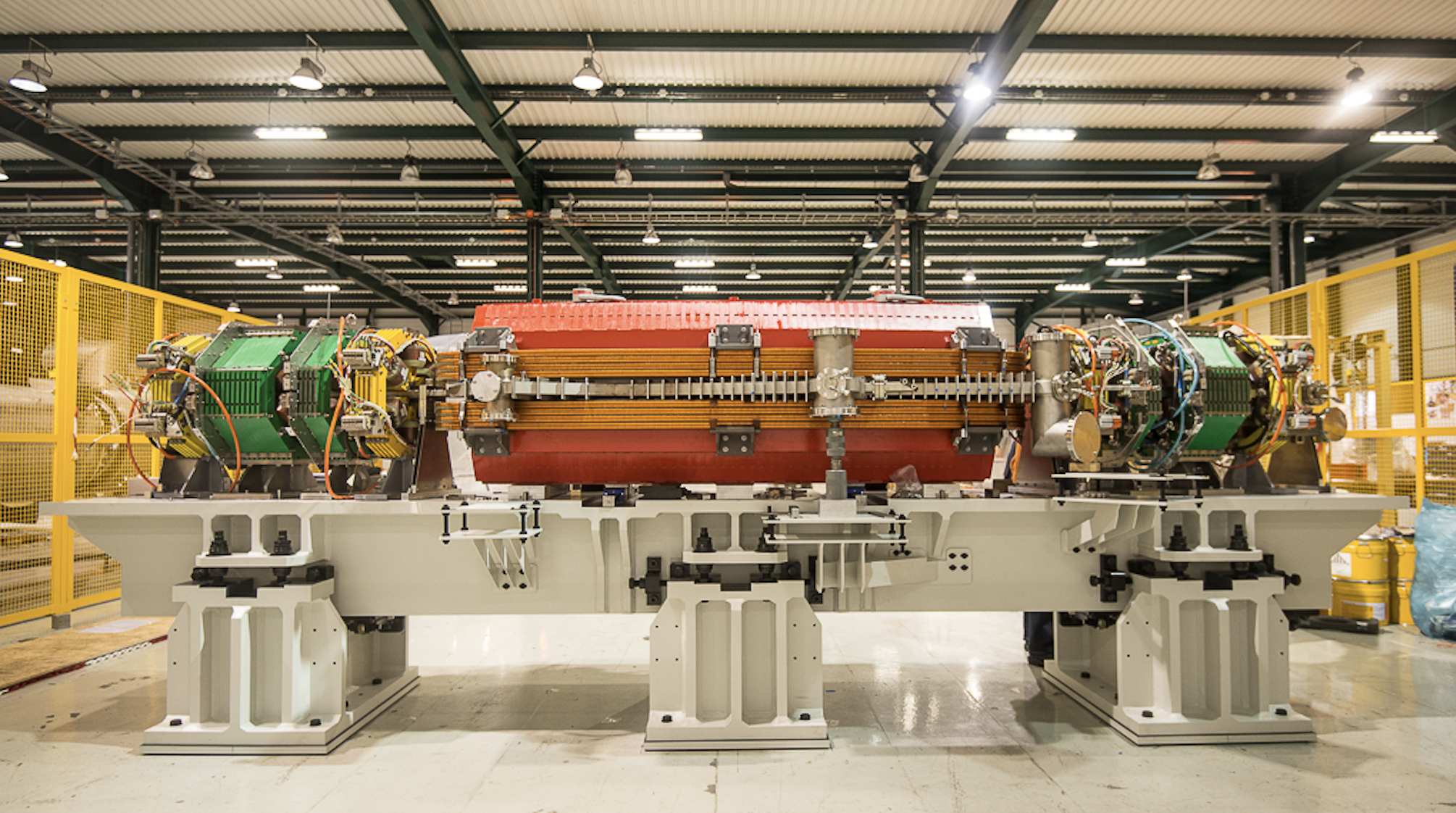
Magnets are tested and assembled at CERN before delivery to the SESAME facility as part of the CESSAMAG project in 2015
Ever since its creation, CERN has sought to forge peaceful ties between countries all over the world, particularly through scientific collaboration, and the Middle East and North Africa (MENA) region is no exception. Today, the Organization is seeking to strengthen its links with countries in the region against the unique political backdrop.
Partnerships between universities and the large LHC experiments (ATLAS, CMS, ALICE and LHCb) are central to CERN's strategy in the MENA region. Although the level of involvement varies widely from one country to another, Martin Gastal, adviser for relations with the MENA region, notes strong interest across the region: "How a collaboration develops depends on many factors, in particular the country's administrative and financial situation. Nevertheless, all the countries have demonstrated a desire to collaborate more closely with the CERN experiments."
Morocco, which was the first country in the region to sign an international cooperation agreement with CERN, in April 1997, is a prime example: its partnership with ATLAS has since evolved into diplomatic relations with the Organization. These relations look set to continue to intensify as the country is considering joining CERN as an Associate Member State. The same is true for Egypt, which signed an international cooperation agreement in 2006, as the Egyptian Minister of Higher Education has also expressed a desire for Egypt to become an Associate Member State of CERN. In addition, CERN is on the receiving end of fruitful initiatives by various other countries, such as Bahrain, which, in summer 2022, offered its services to build a piece of equipment for the CMS detector - an aluminium access frame for the tracker region and the associated installation jig.
Leaving aside the machines, these agreements have an impact on countless individual careers, giving dozens of students the opportunity to cut their teeth at CERN. Every year, summer students from the region are invited to visit the LHC experiments, where they are shown round by colleagues from their region and get to see the contributions made by MENA universities to particle physics research.
In parallel, efforts to prevent a brain drain from the MENA region are a lynchpin of CERN's involvement there. By building up the capacity of local institutes, CERN helps make the countries in the region attractive hubs for particle physics research and for science and technology in general. An obvious example of this is the donation of IT equipment, such as the servers donated in 2019 to An-Najah National University in the West Bank, which paved the way for the university to join the ATLAS collaboration in March 2022, opening up career opportunities for dozens of Palestinian students and researchers. Similarly, CERN sent a large quantity of computer servers to Lebanon following a fundraising campaign for the High-Performance Computing for Lebanon (HPC4L) project, which aims to support the Lebanese scientific community. These donations support students and researchers in their work in the fields of artificial intelligence, algorithm development and machine learning for experimental physics.
In 2017, CERN was granted the status of Observer to the Council of SESAME, the International Centre for Synchrotron Light for Experimental Science and Applications in the Middle East. This organisation, based in Jordan, is the latest to have applied the CERN governance model to particle physics. Transcending political barriers, the laboratory has for the first time given representatives from countries across the region, including Iran and Israel, the opportunity to reach shared positions on scientific cooperation. "The common denominator is science, which makes the bridge of peace easier to cross - they are able to speak freely," says Martin Gastal.
CERN's involvement in SESAME is just one of several avenues being explored by the Organization to promote science in the MENA region. Its intention is to tap into the enthusiasm of the region's countries and scientific communities to chart a path forward with them.
Reema Altamimi is from Nablus in Palestine. She is currently studying for a Masters degree at the University of Paris II, and spent a period as an intern in the Education, Communicaiton and Outreach group at CERN in 2022, thanks to a grant from the Sharing Knowledge Foundation.






